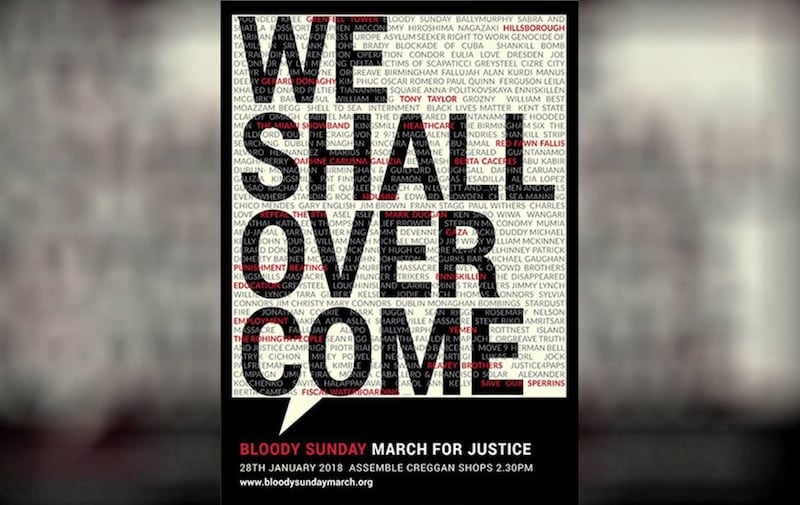TWO republican groups have said they will not take part in a march to mark the 46th anniversary of Bloody Sunday this weekend.
It is understood the decision by the IRSP and Saoradh was prompted after organisers produced a poster which referenced attacks carried out by republicans during the Troubles.
Among attacks featured on the poster are the Enniskillen bombing, the Dublin and Monaghan bombings, the McGurk’s Bar bombing and the Miami Showband murders.
As well as Bloody Sunday victims, it features the name of British soldier William Best, who was shot dead by the Official IRA while on home leave in Derry in May 1972.
The artwork also makes reference to events outside Ireland including the Grenfell Tower disaster.

Fourteen Catholic men died after being shot by members of the Parachute Regiment in Derry in January 1972.
Decisions about the 'Bloody Sunday March for Justice' are taken by a 12-person Bloody Sunday March Committee.
Saoradh spokesman Packy Carty confirmed the party will hold its own wreath laying and anti-internment rally on Saturday.
He said the original Bloody Sunday parade was organised to highlight internment.
“Until such a time as the Bloody Sunday March returns to its roots, we, as a movement, will mark the anniversary and continue to highlight modern British internment and ongoing political repression,” he said.
IRSP spokesman Michael Kelly said that following “an emotive internal debate, the Irish Republican Socialist Party have concluded that they will not attend this year’s Bloody Sunday march, nor participate in any events associated with the currently constituted Bloody Sunday committee”.
He also claimed that some campaign groups have been denied speaking rights in the past.
Event organiser Kate Nash, whose brother William was shot dead on Bloody Sunday, said people can remember the events of that day in whatever way they wished.
“They may want to go to Mass, light a candle or say a prayer,” she said.
“The people who want to march will march - we would not try to criticise anybody for not coming to the march. It’s entirely up to them how they remember Bloody Sunday.
“We always try to reach out and be inclusive.”







